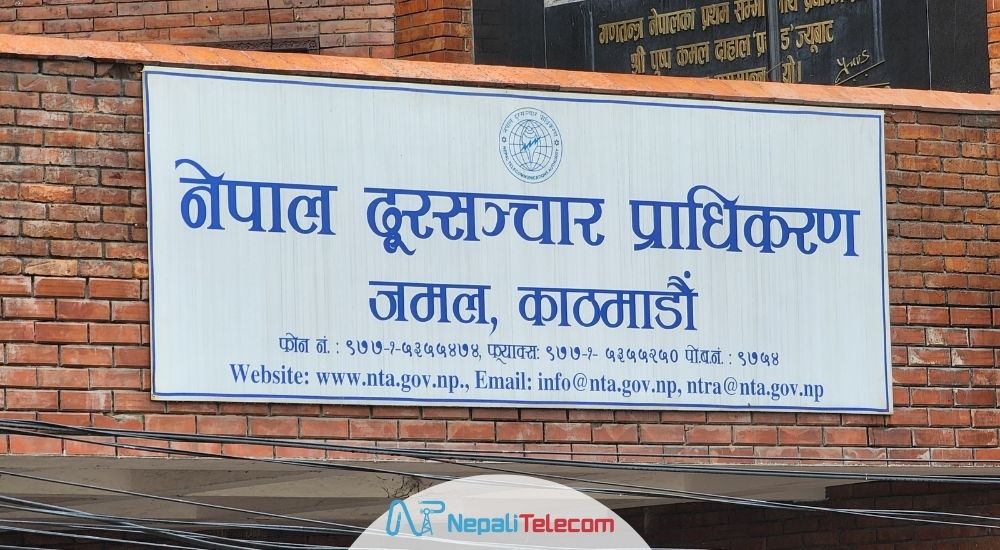NTA has initiated to bring Internet content filtering technology in Nepal to regulate the content on the internet. Nepal government has long talked about sophisticated monitoring of contents posted on the internet, and finally, it seems like they have reached a conclusion. NTA has allocated budget of NRs. 1 billion to materialize the internet filtering project soon.
However, the news is not met by cheers by some factions. Experts are alarmed that the government might exert this technology to squeeze press freedom or freedom of expression. They believe the government might exploit the technology to censor critics and dissenting voices.
Speaking at an interaction program organized by Tech Journal Forum, Nepal Telecommunication Authority Director Mr. Vijay Kumar Roy revealed the plans about content filtering.
He added that NTA is currently studying the bandwidth entering into Nepal. Once they complete it, they will initiate the project regarding the monitoring of internet traffic and content.
The government has reasoned that some internet contents are anti-social and are inappropriate in Nepalese society. People are taking their personal freedom beyond what is acceptable.
Officials believe such contents are disrupting social peace and causing intolerance. They ground that they must regulate those anti-social contents sooner before its negative effects grow beyond control.
Checkout: Internet Usage Increased After the Lockdown
Experts ‘Skeptical‘ About Internet Monitoring
NTA Director Mr. Roy has assured that content filtering is not aimed at censoring on individuals or institutions and asked attendees not to make haste assumptions. He clarified that monitoring the contents won’t equate to media censorship.
However, experts have been skeptical about the government’s objective. Advocate Mr. Baburam Aryal has expressed his concern over the said technology and government’s ambitions. He said that” every government has had similar reservations on internet filtering. This is a recurrent policy of every government in power.”
He added the talk of internet monitoring has been a hot topic for every government since 200 AD. He further criticized the government for not executing already established laws such as the Electronic Transaction Act, The Copyright Act, The Privacy Act, etc., and thus questioned the government for preferring a separate technology that might potentially squeeze freedom of expression.
Later he remarked the government has no definitive criteria to label anything unacceptable. In such a scenario, the government wouldn’t be able to exert rational filtering in the beginning hence a flawed policy.
Further, he expressed his curiosity about the content filtering policy’s timing. He related that the said proposal is arriving ahead of possible mid-term elections next year and the government might exploit the technology to attain the benefits.
In recent days, the so-called “Cybersena” or cyber army has become a heated debate in Nepali media. We are also living in the age of alternative media and fake news. There is a space to suspect that the government may collude with internet technology to sway favors into their hands.
Also Checkout: Government to implement Mobile device management system (MDMS) in three months to curb Grey phones
Internet Content Filtering a Flawed Vision
Internet content filtering is always a much-scrutinized policy. It doesn’t have many followers. Likewise, it has already met many critics.
At the discussion, Nepal Internet Exchange Board member Mr. Indiver Badal remarked that the government’s content filtering plan is not conclusive and labeled it premature. He wished that the government must demarcate the line and then only filtering contents would be reasonable.
He aligned with advocate Aryal that the current technology could be helpful to ward off illicit contents. DNS (Domain Name System) control can notice what is coming through the internet packet and can hold them off.
He suggested that using metadata and DPI (Deep Packet Inspection) technology would help contain inappropriate content on the internet. However, these are sophisticated systems and remain very costly and a challenge for Nepal. The technology the government is importing is flawed.
He exemplified that India, China, and other countries have regularly adopted DNS and DPI technology to censor internet contents. He further added that content filtering is easier said than done.
A country like China has spent billions of dollars every year on using DPI, Metadata, and IP Filtering but still, it has not been able to contain the spread of contents it disapproves of.
He told that Nepal Government seems to be taking the same initiative but NRs. 1 billion will not provide any solution with DPI technology.
Mr. Badaal shared that internet contents can be stopped via three routes; source, transit, and users themselves. If it is to stop the contents at the beginning, the source must be targeted because once the material is available on the internet a simple VPN could do the trick. Source
Mr. Badaal said that the government is trying to target the source. It means that they would call out the site owner or moderator to pull their content if any content displeases the authorities. He says this is inconvenient and a hard task. Without much ground-works, it remains a distant possibility of meeting its goals.
Impact Upon Internet Business in Nepal
Content filtering will create a distance between ISP and consumers. People will lose trust in internet vendors after they cannot surf what they wish for.
WorldLink Chairpersons Mr. Dileep Agrawal claimed that the government itself has no definitive stand on content filtering. He elaborated that “if the government wants to pull a content off Facebook, it is not possible without Facebook itself doing it.”
So far Nepal government has banned 2400 porn sites to curb sexual violence. They are using DNS to do it so far. That means if a user wants to trip over the ban, one must use a Virtual Private Network (VPN) that will unlock the access. There are arguments that internet filtering is not as easy as it sounds.
Recommended Read: Government to assign Nepal Telecom to setup an Infrastructure company to share with others.
The Yea-Sayers
At the event, CAN Federation’s former Vice President Ms. Sunaina Pandey voiced her support in favor of internet content filtering. She emphasized that it will help minimize the growing number of cybercrimes in the country.
She later added that “Youths are among the most victimized due to cybercrimes. In the last five years 20-30 years of age group composed of 52% of victims due to disturbing internet contents and cybercrimes.”
She suggested that the government should go ahead with internet content filtering, but it should also categorize internet content for the feasibility of monitoring them.
Our Verdict
In the age of digital freedom, Internet filtering becomes a sensible issue. Most of the controversial issues end up blaming the political leader’s intention. So, it carries a political overtone that the government may exploit the technology for its own benefits and silence the critics.
The internet filtering issue arises now when the nation might go for mid-term elections soon. And we are living at a time when the idea of Cyber-Sena is gripping the country, it is reasonable that people may doubt the government’s biased approach to contents.
But the approach, if done with correct ambition may be fruitful to reduce violence and cybercrimes. Internet-borne crimes reached a record high, especially after COVID-19. Sexual and obscene contents are believed to mislead the youths for more troubles.
There is huge disapproval about journalism on YouTube. A faction of people has also vouched for a degree of regulation on their activities. Fake news has been another issue on the Nepali internet. It is common to come across baseless and fake news or articles with misleading headlines. The content filtering may render our internet space sophisticated and also make it safe and
What do you think about internet content filtering? Do you think it will curb our freedom on Internet, or can be used for any better? Let us know your opinions in the comments sections.













